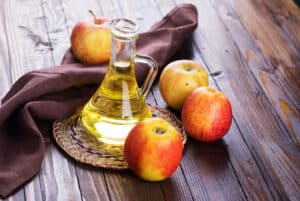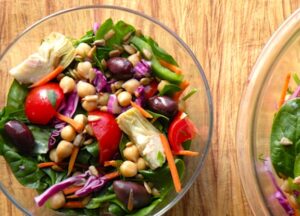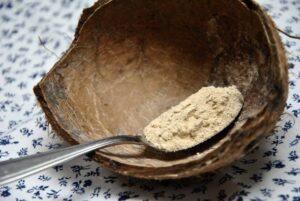A recent study published in Global Environmental Change shows by cutting meat and dairy consumption by 25 percent, we could reduce two greenhouse gases by 80 percent. This is a big, honking deal. So if you’re thinking about moving to a more plant-based diet, welcome aboard and thanks for helping the environment. You’ll be helping your wallet, too, because plant-based protein is cheaper than most animal protein, and you’ll be helping yourself—plant-based protein is low in fat and contains zero cholesterol. Still, what people want to know when they find I’m vegan is, do I get enough protein.
Protein is also a big, honking deal. It’s a conga line of 20 amino acids your body needs for healthy muscles, blood, and skin. Protein keeps you vital. It gives you chi (life force). Alas, you can’t generate it yourself. Fortunately, it’s in a lot of what you eat, including plants.
The Food and Drug Administration’s basic formula for calculating protein needs is .8 grams of protein for every kilogram of body weight. If you’re an average guy of average weight, that’s 56 daily grams of protein. For a woman, it’s 46 grams. And if you’re pregnant or nursing, that number bumps up to 71. Even then, it’s easy to get your protein RDA. The fact is, most Americans get twice that. This is not a case of more being better. Too much protein can up the risk of nasties from heart disease to impaired kidney function. You want your heart to keep beating and your filtration system to be in optimal condition.
Then there’s the myth of incomplete protein. The blame for this falls on the otherwise fine Frances Moore Lappé, author of Diet for a Small Planet. Lappé advocated a plant-based diet in her book which first came out in 1971, but said plant-based protein sources must be combined at each meal. This seemed to give people a license to dismiss a vegetarian diet as requiring too much effort. A few years later, Lappé reversed her decision, the 1982 edition of Diet sets the record straight, stating plant-based protein requires no eye-crossing combination or calculation, it’s great by itself. Even the American Dietetic Association is on board and released a statement as much. Do we listen? No. What lingers in collective memory is the idea plant-based protein is somehow lacking. People, let it go.
So how does a vegan get enough protein? Tempeh’s king, with a stratospheric 20 grams per 4-ounce serving. Tofu has about 9 grams per serving. For those who’d miss the taste and texture of meat, faux meats—veggie burgers, veggie dogs, and the like—make an excellent soy-based substitute, averaging around a dozen protein grams per serving.
To me, fake meats are too close to the real animal deal. I prefer my protein unprocessed and plant-based, by way of beans like chickpeas (15 grams per 1-cup serving) and lentils—(18 grams per 1 cup serving), nuts (5 grams in a small, delicious handful), whole grains like oats (6 protein grams per ½ cup serving), and my favorite surprise protein source: quinoa. It looks like a grain, but is really a grass, cooks up quick, is mild-flavored, fun in the mouth, versatile as hell, and half a cup has a dozen protein grams. Even my favorite vegetable, broccoli, contains protein (4 grams per serving).
This should (you’d think), put the whole “enough protein” myth to rest, but it won’t. Would that I had a dollar for every time it came up. I could afford to buy an organic soy cappuccino every day for an entire year (thus ensuring I’d be getting at least 7 daily grams of protein without even trying).
- Link here to Ellen’s recipe for Smoky Quinoa with Mushrooms.
- See more of Ellen’s Meatless Monday Musings on VegKitchen.
- See more on Protein for Plant-Based Diets.






Mama_J says
What a delicious and satisfying read!
A says
She was referring to combining plant-based foods rich in certain amino acids; you can be amino acid deficient with an adequate protein intake. Amino acid deficiency can be just as deleterious. This is a pretty misleading article.